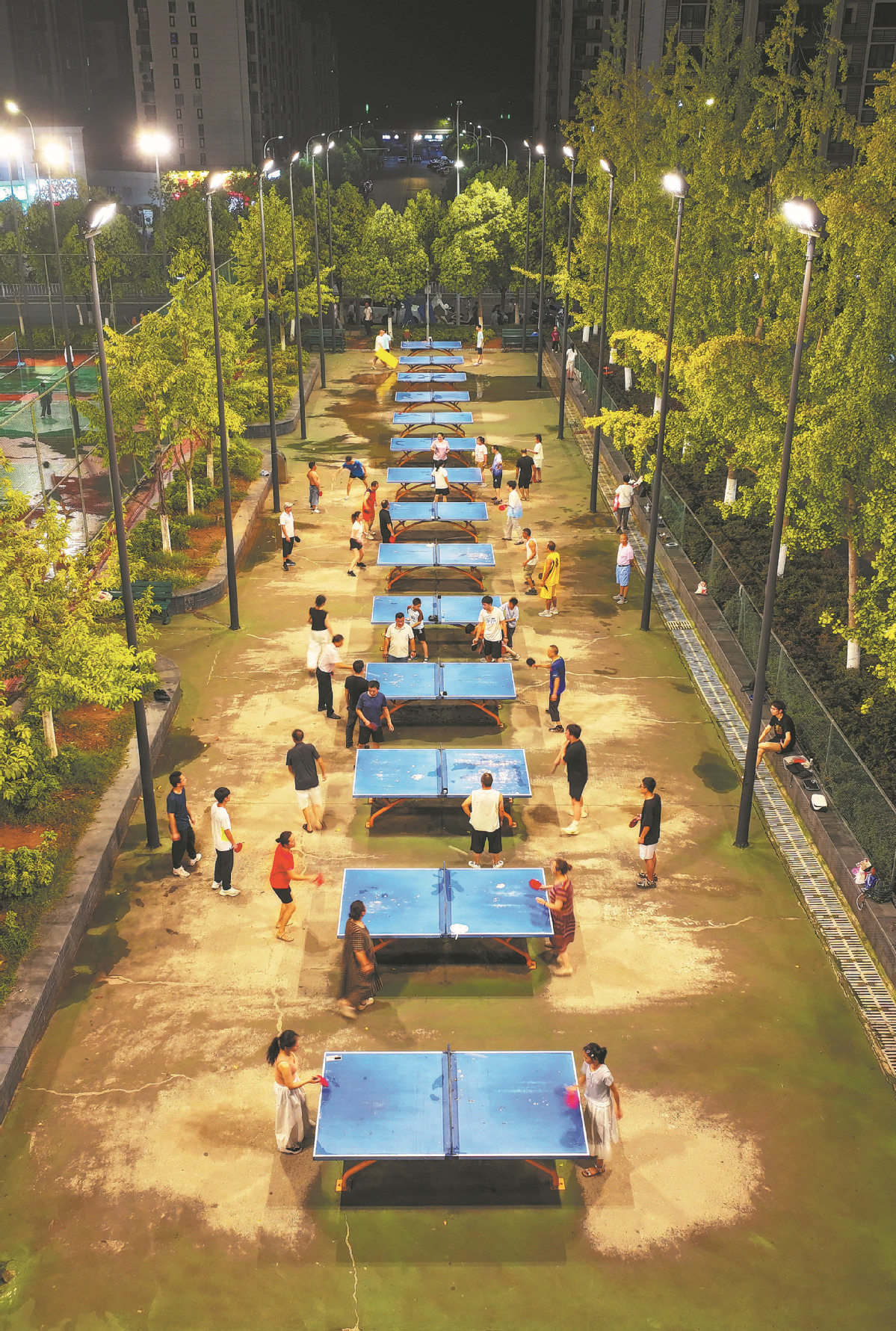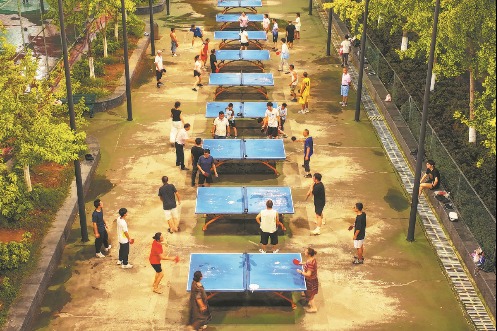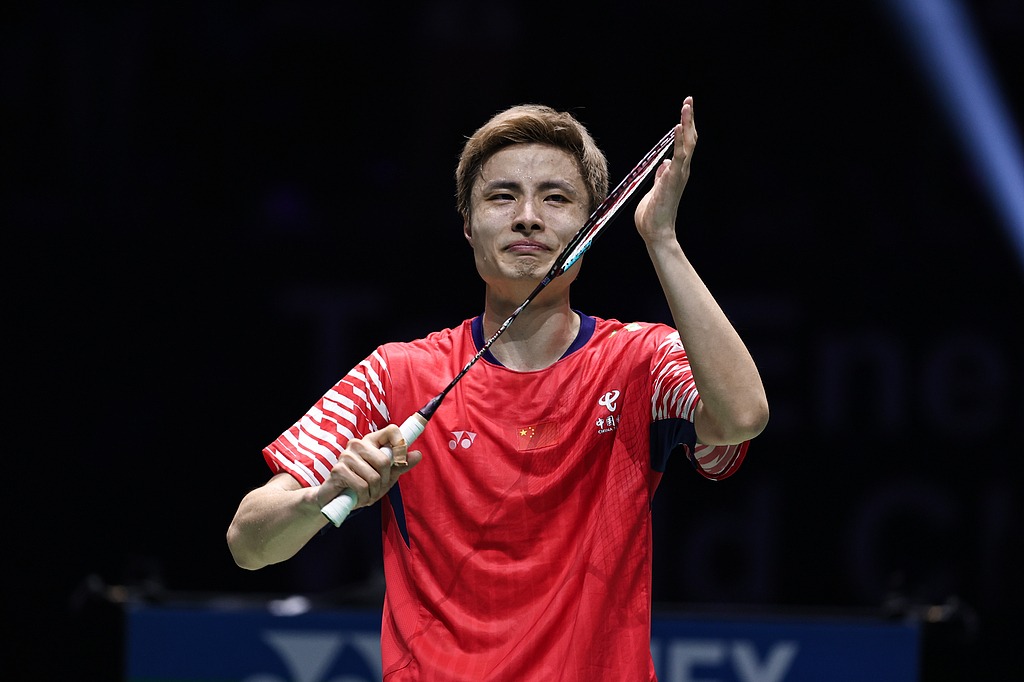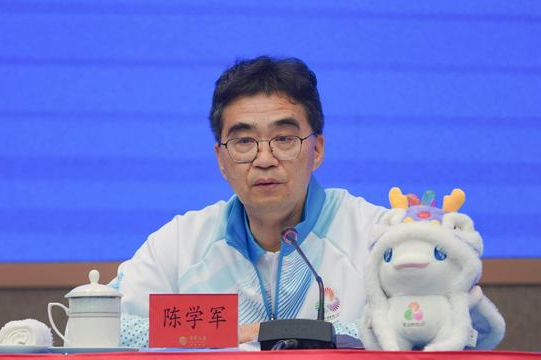Building ping pong communities
Enthusiasts across the country are reaping benefits of program to increase access to national pastime


Sunlight slanted across the cobblestones of Beijing's Longtan Lake Park, catching the edges of ping pong tables where the rhythmic clacking of balls on paddles mixed with laughter. Children leaned over the tables, eyes wide, as Li Yunliang, a researcher at the Chinese Academy of Sciences, demonstrated how spin could make a ball curve and dance.
"It's not just the bounce," Li said. "It's the airflow caused by the spin — topspin, backspin, each one changes the flight completely."
Fluid dynamics, usually trapped in textbooks, was suddenly alive in the children's hands.
This was part of "Bringing Ping Pong to Communities and Parks", a public welfare program launched in 2023 by the Ministry of Housing and Urban-Rural Development and the General Administration of Sport of China.
The project aims to embed ping pong tables and small fitness facilities into local neighborhoods, creating a "15-minute fitness circle" around residents' homes.
Olympic champions Ma Long, Li Xiaoxia, Ding Ning, and Liu Shiwen joined in, sharing tips and high-fives with over a hundred local residents.
"Table tennis isn't just a sport," Ma said. "It strengthens the body, sharpens focus and teaches kids how to handle both victory and defeat."
Its deep roots in Chinese culture make it the perfect bridge between competitive achievement and public engagement, Ma said.
Since the initiative began, roughly 38,000 new tables and 135,000 other fitness facilities have been installed nationwide. Nearly 14,000 competitions have drawn over 1.3 million participants. But, behind the numbers is a story of community, curiosity and the simple joy of a ball bouncing across a table in the morning sun.
A short walk away, at the Longtan Central Lake table tennis court, the action continued. As a pilot site for the same initiative, the two new courts added in 2023 — with 17 tables in total — have become a hub for fitness and friendly competition, drawing players from Dongcheng as well as neighboring Xicheng, Chaoyang and Fengtai districts.
Wang Liguo, a local umpire from the city's Haiyuncang Community, has seen the transformation firsthand. "Table tennis in Beijing is growing stronger every year. More people are playing, skills are improving and everyone knows the rules better," he said. "In our community, there are six outdoor tables downstairs and six indoors — residents can just step out of their apartments and start playing."
Since the initiative began, Dongcheng has invested heavily in grassroots sports facilities, creating 166 table tennis halls and 198 courts covering more than 57,000 square meters. Annual events like the "Harmonious Cup", now in its 19th year, draw dozens of teams and nearly a hundred players.
For young players like 18-year-old Zhi Yuelun, these community courts are more than just spaces to play — they are a lifeline. Every Saturday, he practices for two hours, surrounded by neighbors who double as teammates.
"Playing table tennis has made me more confident and helped me meet new people," Zhi said. "With the pressure of schoolwork, it's my way to relax." Last year, he even clinched the championship at the Longtan Central Lake Competition.
Most Popular
- Building ping pong communities
- Shi downs Kunlavut to win first world title
- China's Liu/Tan win women's doubles title at badminton worlds
- Jeremy Lin ends 15-year basketball career
- Preparations for China's Special Olympic Games enters 'sprint phase'
- Kane's late goal saves Bayern's blushes































